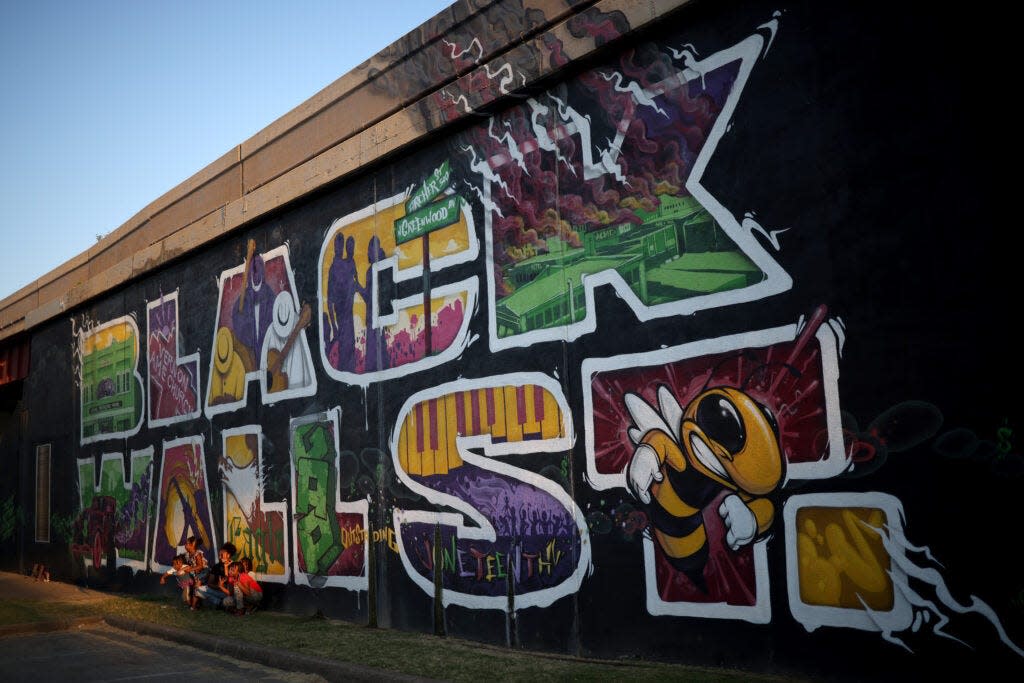Black community reacts to state Supreme Court decision on Tulsa Race Massacre reparations

In the wake of the state Supreme Court dismissing a lawsuit in which survivors of the 1921 Tulsa Race Massacre sought reparations, some in the Black community said the court’s decision was expected but they remained disappointed.
“It’s not surprising, but it is very disappointing,” Tracie Chandler, a Tulsa community activist, said. “I love my country. I love Tulsa. I wanted Tulsa to rise to its highest potential and it has not done that.”
The race massacre is considered one of the worst incidents of domestic terrorism in American history.
Between May 31, 1921, and June 1, 1921, mobs of angry white men stormed the well-established and prosperous Black community of Greenwood, also known as Black Wall Street, in Tulsa.
More than 1,000 homes were burned and businesses left in ruins as 35 city blocks were destroyed, and, though just 39 deaths were listed in official records, estimates now put the number at closer to 300.
Because the massacre was originally deemed a riot, the Oklahoma Supreme Court immunized insurance companies from liability in 1926, meaning none of the Black home or business owners could make claims for property loss.
Survivors Viola Fletcher, Lessie Benningfield Randle and Hughes Van Ellis initially filed a lawsuit for reparations in 2020 against the City of Tulsa, Tulsa Regional Chamber, the Tulsa County Commissioners, Tulsa County Sheriff Vic Regalado and the Oklahoma Military Department.
Van Ellis, the youngest of three, died last year at the age of 102.
The lawsuit claimed the 1921 Tulsa Race Massacre represented an "ongoing public nuisance," and that "in 2016, the Defendants began enriching themselves by promoting the site of the Massacre as a tourist attraction."
Last year in Tulsa County District Court, Judge Caroline Wall dismissed the lawsuit. The survivors appealed to the state’s high court.
The state Supreme Court affirmed Wall’s decision.
The court found the survivors’ public nuisance claim did not fall within the scope of Oklahoma’s public nuisance statute.
The court also held that the survivors’ claim of unjust enrichment was not sufficiently supported.
“Absent an allegation claiming that Defendants are falsely or fraudulently promising donors that Plaintiffs will share in or benefit from the proceeds of their fundraising efforts, Defendants' conduct itself is not legally unconscionable,” the court wrote.
Chandler said Tulsa is benefiting from the massacre through tourism while the survivors and descendants lost untold wealth.
“These survivors have received nothing outside of an apology,” Chandler said. “These people lost everything. That was generational wealth lost and the city is getting enriched by it because of the people that are coming here because of the 100th anniversary, because of the museum and because of more people knowing what happened. Tulsa is getting more funds. What about the survivors?”
In a widely disseminated statement, the city of Tulsa said:
“The City of Tulsa respects the court’s decision and affirms the significance of the work the City continues to do in the North Tulsa and Greenwood communities. Through economic development and policy projects, the 1921 Graves Investigation, and a renewed community vision for the Kirkpatrick Heights & Greenwood Master Plan, the City remains committed to working with residents and providing resources to support the North Tulsa and Greenwood communities.”
The survivors’ legal team said in a statement they would petition the Oklahoma Supreme Court to reconsider its decision.
“In 103 years since the Massacre, no court has held a trial addressing the Massacre and no individual or entity has been held accountable for it,” they said. “As justice is delayed once again in the Oklahoma court system, we call upon the United States Department of Justice to open an investigation into the Massacre under the Emmett Till Unsolved Civil Rights Crime Act of 2007.”
In a statement, state Rep. Jason Lowe, D-Oklahoma City, echoed the disappointment.
“Viola Fletcher, Lessie Evelyn Benningfield Randle, and the family of the departed Hughes Van Ellis will never be able to receive their due justice in the state of Oklahoma," Lowe said.
Quraysh Ali Lansana, an author, historian and visiting associate professor at the University of Tulsa, said the city of Tulsa and the state of Oklahoma were “complicit in the massacre.”
“Many Black Oklahomans have lost their trust and their faith in law enforcement and the judicial system, and in city and state government in regards to the issue of being Black in Oklahoma,” Lansana said.
Lansana said the court’s decision is a “telling reminder of the state of racial justice when it comes to Black folks.”
“It is really disheartening,” he said.
This article originally appeared on Oklahoman: Black community: Not surprised but disappointed in court ruling on Tulsa reparations

